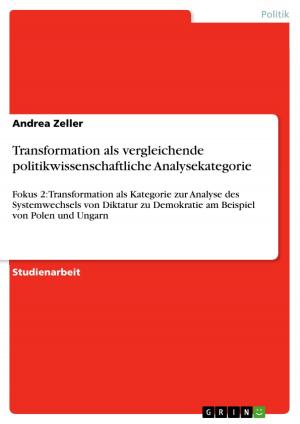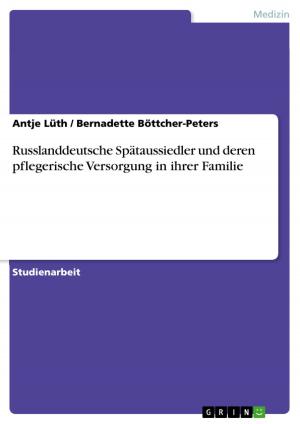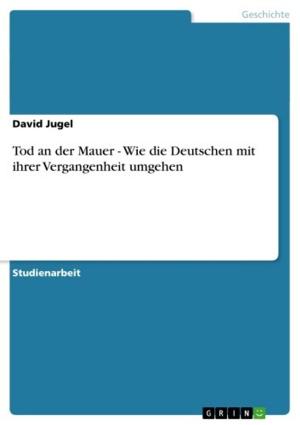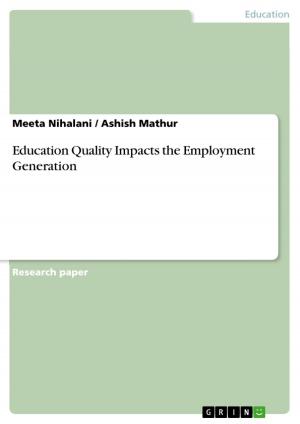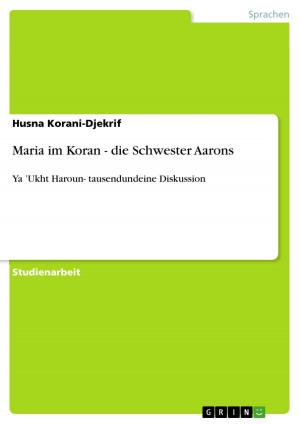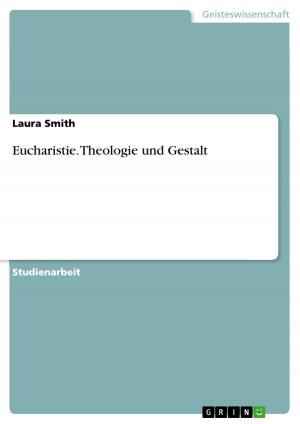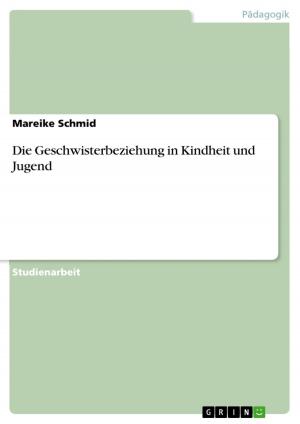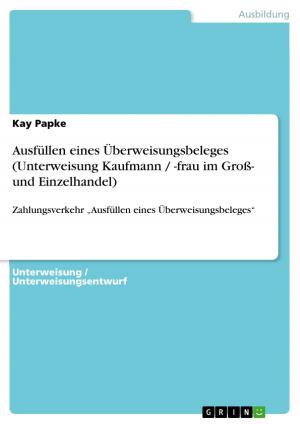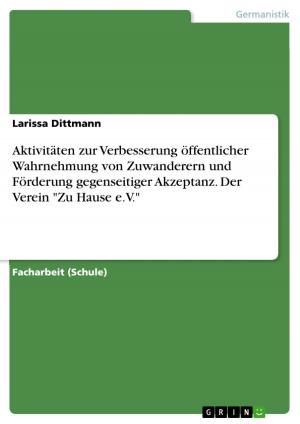Does Foreign Aid to the Energy Sector improve Electricity Supply in Developing Countries?
Evidence from Panel Data
Business & Finance, Economics, International| Author: | Simeon Häfele | ISBN: | 9783668487956 |
| Publisher: | GRIN Verlag | Publication: | July 20, 2017 |
| Imprint: | GRIN Verlag | Language: | English |
| Author: | Simeon Häfele |
| ISBN: | 9783668487956 |
| Publisher: | GRIN Verlag |
| Publication: | July 20, 2017 |
| Imprint: | GRIN Verlag |
| Language: | English |
Bachelor Thesis from the year 2016 in the subject Economics - International Economic Relations, grade: 1,0, University of Bayreuth (RW Fakultät), course: Entwicklungsökonomik, language: English, abstract: This bachelor thesis examines whether foreign aid to the energy sector has a significant impact on the development of a country's electricity sector by analysing the impact of aid disbursements to the energy sector on three different sector-specific outcome indicators in a fixed effects model. Besides, as heterogeneity of aid recipients might influence the effect, different regressions are run for low income, lower middle income and upper middle income countries. Results indicate that foreign aid to the energy sector affects electricity output positively and significantly, while not having an impact on generation capacity. The impact on electricity consumption per capita remains unclear. Furthermore, it seems to work more effectively in richer countries. This is robust to a set of sensitivity tests. Thus, the results emphasize the importance of disaggregating aid flows and the use of sector specific outcome variables in order to measure the impact of foreign aid.
Bachelor Thesis from the year 2016 in the subject Economics - International Economic Relations, grade: 1,0, University of Bayreuth (RW Fakultät), course: Entwicklungsökonomik, language: English, abstract: This bachelor thesis examines whether foreign aid to the energy sector has a significant impact on the development of a country's electricity sector by analysing the impact of aid disbursements to the energy sector on three different sector-specific outcome indicators in a fixed effects model. Besides, as heterogeneity of aid recipients might influence the effect, different regressions are run for low income, lower middle income and upper middle income countries. Results indicate that foreign aid to the energy sector affects electricity output positively and significantly, while not having an impact on generation capacity. The impact on electricity consumption per capita remains unclear. Furthermore, it seems to work more effectively in richer countries. This is robust to a set of sensitivity tests. Thus, the results emphasize the importance of disaggregating aid flows and the use of sector specific outcome variables in order to measure the impact of foreign aid.

